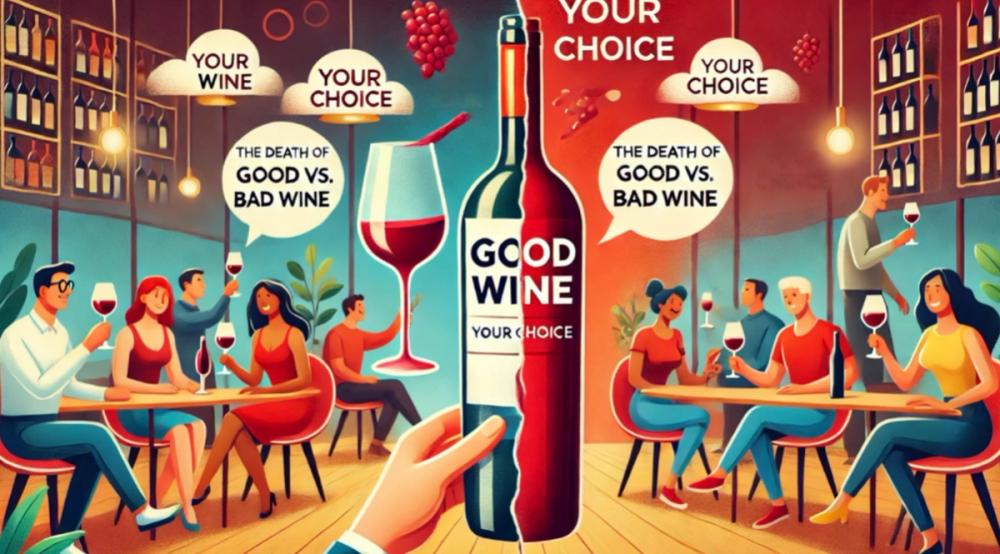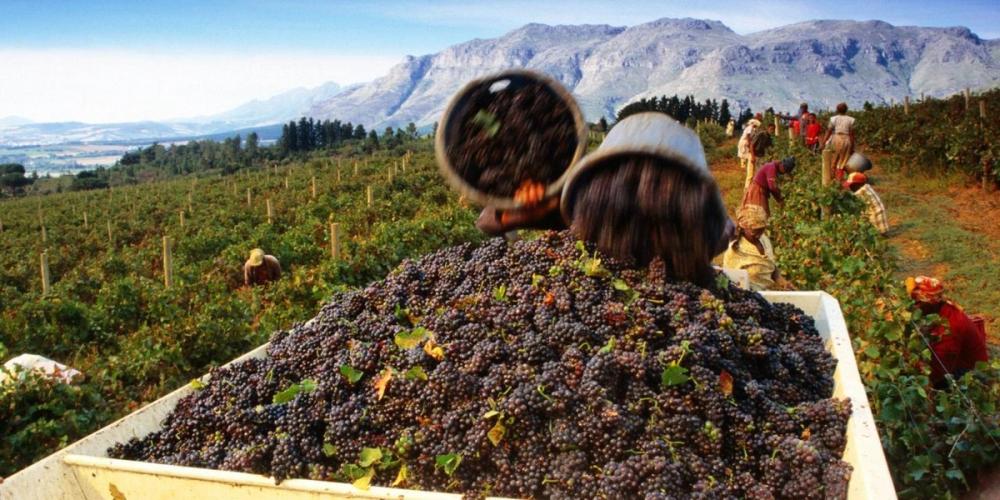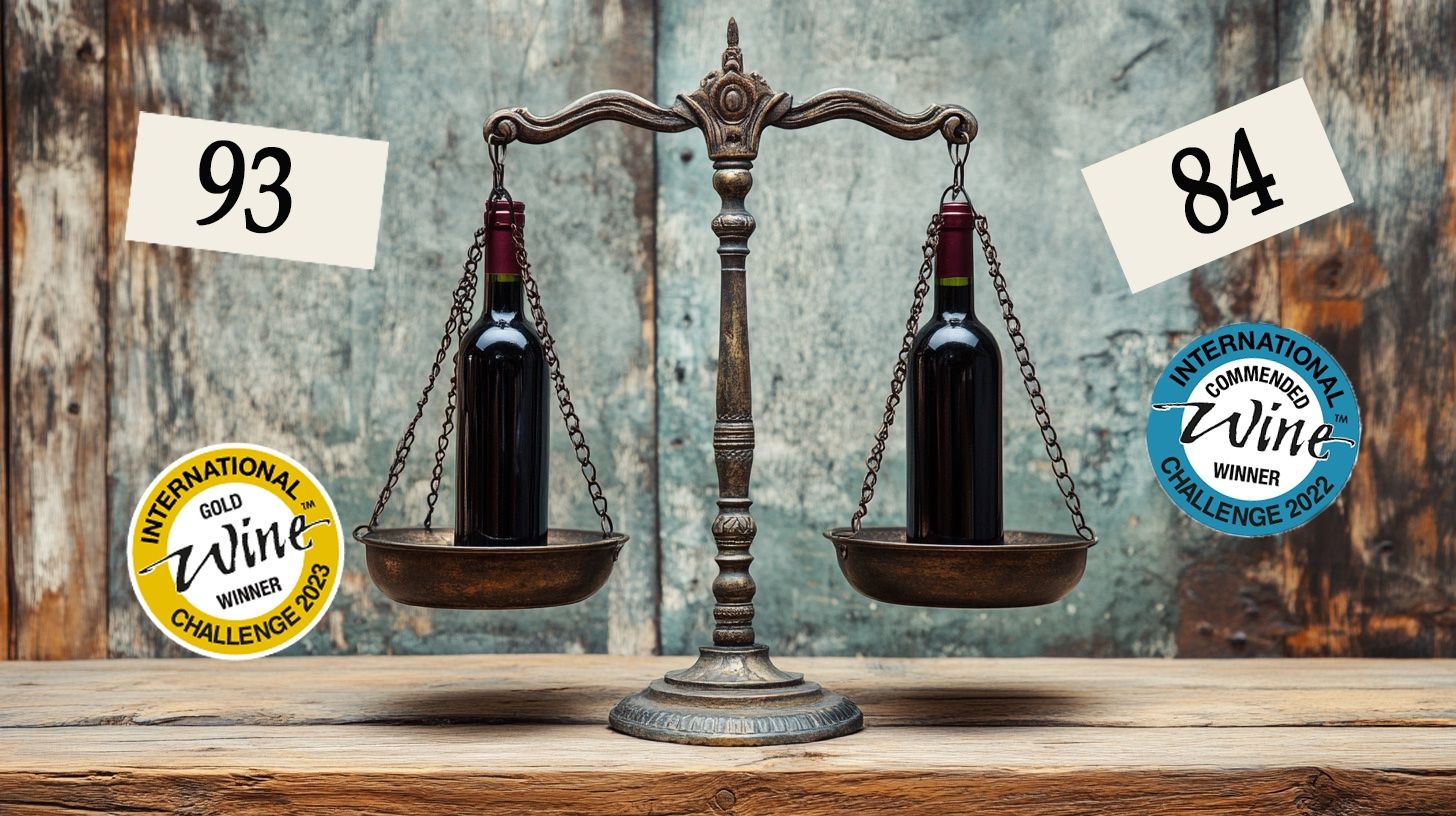Anyone who knows anything about me will be aware that: a) I have long thought – and said - the wine industry needs to adapt to changing times; b) I have a reputation as an iconoclast and; c) believe we need to encourage a new generation of vinous opinion formers.
So, when I first met Priscilla Hennekam and learned of her ‘Rethinking the Wine Industry’ project and platform, I became one of her earliest supporters, and described her as a ‘breath of fresh air’. Her swift amassing of an audience of some 10,000 says much about her skills – and about a hunger within the industry for new directions.
I really like the basic thrust of her The Buyer piece against talking about ‘bad’ wine. This is something I see industry members doing a lot among themselves, rubbishing Parkerised, natural, ‘industrial’, over-oaked, overpriced and luxury wines, sugary blends and heavy bottles. Oh yes, and Pinot Grigio and Prosecco.

Priscilla Hennekman's original article on The Buyer made the argument the wine industry is danger of scaring consumers with 'good' or 'bad' wine messaging
Do other industries have this kind of circular firing squad? I can’t say, because I don’t spend any time listening to what car, fashion or machine tool professionals say amongst themselves. Any more than most casual wine drinkers ever hear wine pros slagging off each others’ products.
To hell with the snobs
But what about ‘wine snobs’? After all, for Hennekam, ‘wine snobbery’ is one of the biggest reasons for the difficulties in which wine finds itself. She is certainly correct in saying that wine snobbism exists. Inconveniently, however, so do lots of other kinds of snobbism. Listen to skiers talking about newbies on the slopes ‘with all the gear but no idea’. Or opera buffs dismissing Bocelli, hi fi enthusiasts rubbishing people who’ve bought Bose kit – and the opprobrium aimed by many at human beings who happily drink instant coffee.
The reality is that most casual and potential wine drinkers are far less likely to hear about ‘good’ and ‘bad’ wine than about ‘good’ and ‘bad’ food. They won’t be looked down on by a wine shop manager, because they’ll be buying their wine in a self-service retailer and the restaurants they frequent will rarely run to employing a somm.
Snobbism is a human trait that’s associated with any complex sector for which some people have developed a passion and interest.
No more sommelier competitions?
Hennekam dislikes the pretentiousness of wine service. And so, in some ways do I. There is no need for customers to be handed the cork, for example. But there are still lots of smart restaurants successfully selling smart wines at high prices to smart customers who appreciate the frills and expertise for which they are paying. Should these restaurants and wines no longer exist? Should the applicants to sommelier courses be told to give up?
Hennekam likes to reference the way Uber revolutionised the taxi business. No Uber-style business can or will transform wine in that way. Taxis, globally, are substitutable; nobody cares about the brand or the driver, provided they get them from A to B. Uber simply offers that service more quickly, simply and efficiently.
There are an estimated 300,000 wines in the US market and quite probably heading for a million globally. Each of these claims to have its own identity, or at the very least, be part of a regional or stylistic community.
Not just taste

Consumers like to be guided in what to like across all areas of what they buy - which is why having a Car of the Year is so important to the car indusrty, argues Robert Joseph
Inconveniently, wine drinkers choose one wine rather than another (for themselves and their guests) for a wide range of reasons that include, but go far beyond, and their own preference. This will always be a challenge for the AI bots that Hennekam believes are going to transform the industry.
Central to her Buyer argument was a desire to see an end of some wines being presented as ‘better’ than others. She would also happily be rid of critics and competitions.
Human beings, though, in any sector are naturally competitive and seek recognition for what they do. We’ll no longer have ‘better wines’ when we stop having football league tables, marathons, Cars and Watches of the Year and dog shows.
Maximizers and satisficers
But there are also many of the rest of us who – as Google Trends reveal – go looking for ‘best’ in any category – rather than ‘most popular’. There is a term for these people: maximizers - as opposed to satisficers who happily put up with what they find to be serviceable and affordable.
Even if or when there are no ‘experts’, critics or competitions to help the maximizers, they’ll rely on peer reviews like Tripadvisor or Vivino. What were the Gen Z staffers doing at the end of a recent distributor tasting in London? Scanning the labels of the half-full bottles looking for ones with ‘at least 4.2’.
Affordability and price raise another issue. If all wines are equally ‘good’, why should some cost so much more? It’s not as though they are like cars with better acceleration or cameras with finer lenses. So, presumably, the pricy bottles would all also have to go in the bonfire of the vanities.
Too many appellations?
Hennekam and I agree that there are far too many appellations, most of which have little resonance for consumers. Having 409 Italian DOCs and DOCGs makes no sense. But nor, on paper, does Italy also having 594 football divisions and 3,332 officially recognised teams (excluding Seconda and Terza Categoria). The explanation for both is the same. We are tribal creatures with local/regional pride.
Asking a village anywhere to dump the appellation they’ve fought to have recognised, and believe in, is a waste of time. And, in any case, as creators of young US AVSs will confirm, used properly, these can be profitable additions to a range in a tasting room, even if they make no sense to most people looking at a bewildering wall of wine or encyclopaedic wine list.
The real problems

All over the world producers are having to face the fact that too many grapes are being grown and picked every year for how much wine is being sold and drunk
The wine industry has a set of problems that need to be addressed.
- There has been far too much wine for a very long time. We hoped the Chinese would solve this problem, but they didn’t. We’ll have to uproot 10-20% of the world’s vines.
- There are far too many wines and far too few producers with the will and expertise to do any useful marketing to turn these into meaningful brands. Even those who do have these, mostly lack the margins that would allow them to employ them. (Unlike Champagne, leading Provence rosé, and spirits producers.)
- There is far too much reliance, globally, on sales through supermarkets which have no interest in wine beyond its value as a footfall-builder
These are all structural issues that merely add to the challenges of climate change; government legislation and taxation; an increasingly powerful anti-alcohol lobby; not entirely unreasonable concerns over health and wellbeing; disaffection among younger, and not so much younger (up to 45 years-old) consumers; and growing competition from other beverages and substances.
We need people like Priscilla Hennekam and her 10,000 followers to rattle the wine industry cage, and to do so as vigorously and imaginatively as possible. But they are going to have to come up with better ideas than suggesting that all wines are as good as each other.
* Robert Joseph is co-owner of the Le Grand Noir wine brand in France and K’AVSHIRI in Georgia. He also writes the weekly Devil’s Advocate column in Meininger’s International and provides consultancy services to companies and regions.






























